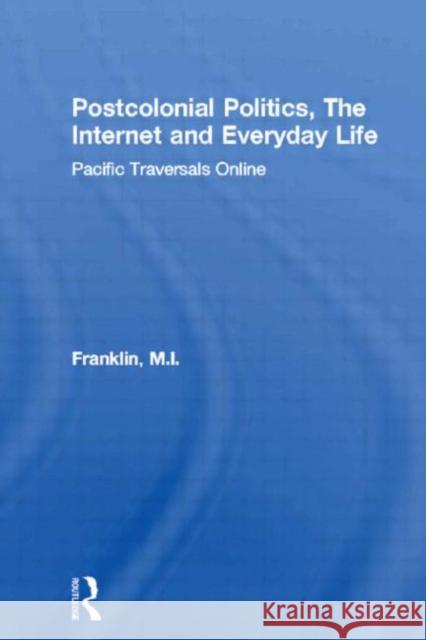Postcolonial Politics, The Internet and Everyday Life: Pacific Traversals Online » książka
Postcolonial Politics, The Internet and Everyday Life: Pacific Traversals Online
ISBN-13: 9780415459907 / Angielski / Miękka / 2007 / 308 str.
In this ground-breaking study M.I. Franklin explores the form and substance of everyday life online from a critical postcolonial perspective. With Internet access and social media uses accelerating in the Global South, in-depth studies of just how non-western communities, at home and living abroad, actually use the Internet and web-based media are still relatively few. This book's pioneering use of virtual ethnography and mixed method research in this study of a longstanding 'media diaspora' incorporates online participant-observation with offline fieldwork to explore how postcolonial diasporas from the south Pacific have been using the Internet since the early ways of the web. Through a critical reconsideration of the work of Michel de Certeau in light of postcolonial and feminist theories, the book provides insights into the practice of everyday life in a global and digital age by non-western participants online and offline. Critical of techno- and media-centric analyses of cyberspatial practices and power hierarchies, Franklin argues that a closer look at the content and communicative styles of these contemporary Pacific traversals suggest other Internet futures. These are visions of social media that can be more hospitable, culturally inclusive and economically equitable than those promulgated by both powerful commercial interests and state actors looking to take charge of the Internet 'after Web 2.0'. The book will be of interest to students of international politics, media and communications, cultural studies, science and technology studies, anthropology and sociology interested in how successive waves of new media interact with shifting power relations at the intersection of politics, culture, and society. First published in hardback in 2005.
The dotcom boom may well have come and gone but information and communication technologies (ICTs) are now an inescapable part of both everyday life and world politics.
In this close-up study of several longstanding Internet discussion forums, M.I. Franklin explores the form and substance of everyday life online. The author traces how non-Western diasporas use the Internet to talk productively about local and global politics, cultural issues, and identity in an era dominated by neoliberal globalization. The openings for intercultural and intracultural empowerment, online and also on the ground, that emerge through ordinary people's uses of the Internet are being squeezed out, however, by powerful political economic and sociocultural interests from above and below. Franklin argues that a closer look at the content and communicative styles of these Pacific traversals online suggest other Internet futures; more hospitable, culturally inclusive and economically equitable than the one currently being put in place by vested economic interests and political power elites.
This book will be of interest to students of international relations, social sciences, cultural studies, science and technology studies.











